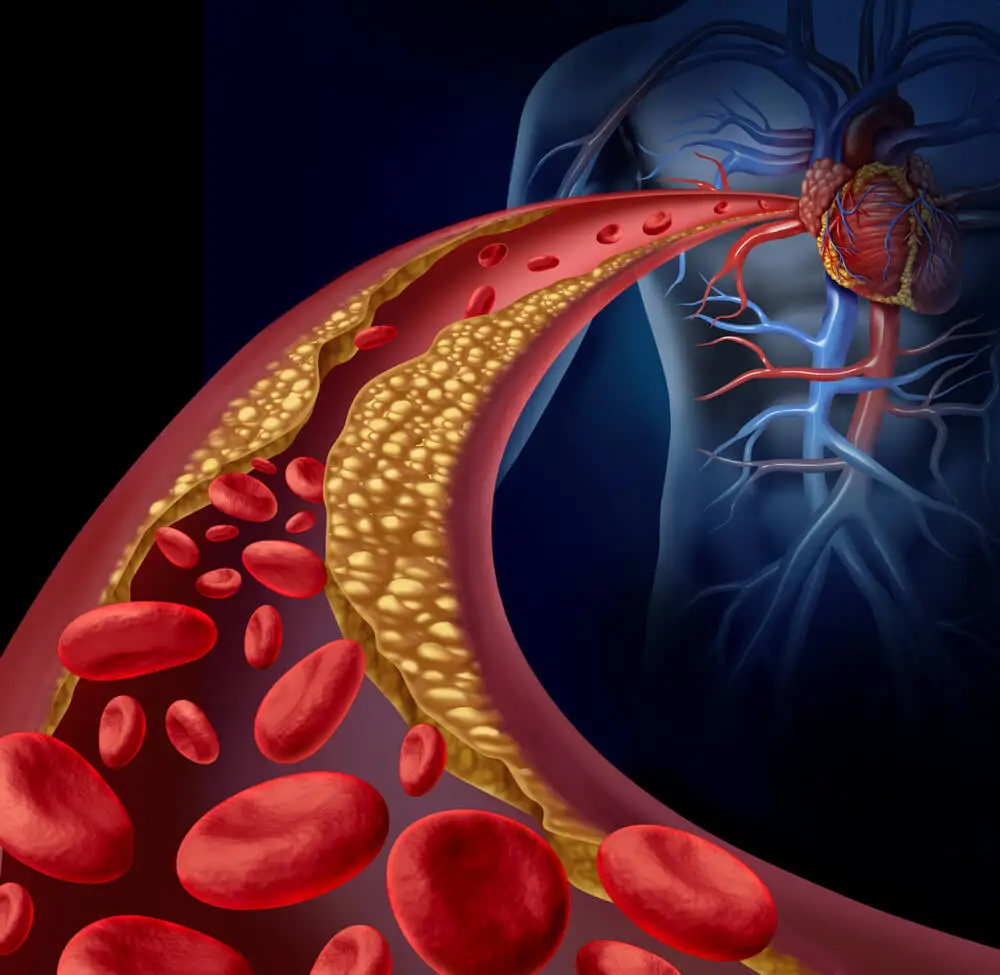4 Tips to Avoid the Effects of Fried Foods in the Diet


Written and verified by the nutritionist Maria Patricia Pinero Corredor
Deep-fried foods are popular and common. They are edibles that are subjected to cooking in hot oil. They’re readily available in most restaurants and fast food places. In this article, we’d like to give you some tips to avoid fried foods in your diet.
Fried foods are unhealthy for several reasons. Among them, because they can increase heart problems. In addition, when oil is heated, toxic substances are produced.
What are fried foods?
Frying is a simple cooking method. It consists of heating oil or edible fat to 160 or 180 degrees Celsius and then cooking the food in it. Thus, fried foods are those that pass through the oil and form a crust characteristic of the roasting of proteins.
In this cooking process, changes in nutritional composition occur. The most common is the increase in total fat when it is absorbed or its decrease if it goes into the oil.
We think you may be interested in reading this, too: 15 Foods that You Should Avoid at All Costs
Adverse effects when consuming fried foods
Consuming fried foods has some harmful consequences for health. This is because changes occur in the components of the food. In addition, the oil in which it is fried is also modified.
Formation of toxic substances
During frying, deterioration of the oil occurs. As a result, chemical compounds such as free radicals are formed and fatty acids are released from triglycerides, making them more susceptible to oxidation. Polymers are also formed from them. Among them, the most harmful are the ones we will discuss.
Acrylamides, the result of cooking and processing oil at high temperatures, have been found to be toxic. They affect the peripheral and central nervous system, hampering motor and sensory functions.
In addition, studies claim that they have the ability to form cancerous tumors in organs such as the brain, skin, and lungs. In fact, the International Agency for Research on Cancer claims that this is even a possible carcinogen. However, more studies are needed to corroborate these results.
Oxysterols are also formed during frying. These are chemical compounds that result from the oxidation of cholesterol in foods of animal origin.
Oxysterols can cause negative effects in the body, such as preventing normal cholesterol synthesis in the body and inducing apoptosis, which is programmed cell death. This could affect the integrity of different tissues.
Similarly, the formation of trans fats occurs. It’s normal for the double bonds of unsaturated fatty acids to remain in the cis position. However, chemical processes at the industrial level cause them to change to the trans position, which is not recognized by the lipase enzymes in the human body.
High frying temperatures can also convert them into trans fats, especially when the oil reaches the smoke point. That is, this occurs at the temperature at which the fried oil begins to break down. The first indicator is the formation of the smoke itself when heat is applied.
Trans fat consumption is associated with an increase in cardiovascular disease. According to the Pan American Health Organization (PAHO), the intake of trans fats is responsible for 537,000 premature deaths due to heart disease.

Loss of nutrients
Some vitamins (A, D, E, and K) dissolve in fat, according to research. So, when they are subjected to frying cooking, they are lost because they remain in the oil.
Thus, they are prevented from reaching the body and consumption is not as nutritious as if the food were cooked in any other way. In addition, other vitamins are lost, such as Vitamin C, B1, B2, and folic acid.
Similarly, frying helps the evaporation of water in food. Thus, it makes the food toasted and with fewer nutrients to provide.
Absorption of fats
In the frying process, food can absorb the oil in which it is being cooked. One study compared potato, green plantain, ripe plantain, and cassava as to which absorbed more oil.
All four had a significant increase in fat, but the food with the most fat after frying was the ripe plantain. This is because it is softer, with more moisture and more sugars to caramelize.
However, just as fats can be absorbed, they can also be reduced. Mainly, it happens with unsaturated fatty acids, which change to trans and free radicals. While saturated fats are much more stable, according to research.
Tips to avoid fried foods in your diet
Now that you know why you should not eat fried foods and their harmful effects on health, we’ll tell you how to avoid fried foods in your diet and lead a healthier life.
1. Opt for other cooking methods
One of our tips to avoid fried foods in the diet is to use alternative ways of cooking. There are healthier types of cooking, such as steaming or cooking food with little water and just the right amount of time. Always put the food when it reaches the boiling point.
Another nutritious way of cooking is baking. This way most of the vitamins and minerals are preserved. However, it should be done at very high temperatures for short periods of time.
Grilling can also be healthy. As long as medium-high temperatures are used, as very high temperatures can result in burnt food.
Like this article? You may also like to read: Do You Know the Six Foods with the Most Toxins?
2. Use oil-free cooking
Nowadays, there are hot air fryers that transmit heat at temperatures between 170 degrees and 200 degrees Celsius, similar to normal frying. This device manages to cook the food with 85% less fat.
In addition, a study found that cooking with hot air is able to reduce the formation of acrylamide by 90%. This means food cooked this way is less toxic to ingest.

3. Use the best oils for frying
Hydrogenated oils, such as vegetable blends, are best for frying. They are less transformed by heat and retain some of their polyunsaturated fat. This reduces the production of toxic substances.
Among pure oils, a study found that coconut oil resists heat better because it has 90% saturated fatty acids. It was shown that 8 continuous hours at a temperature of 180 degrees Celsius did not change its chemical composition.
Another study also points to extra virgin olive oil as a good choice for frying. However, this type of oil is very pure and, despite having monounsaturated fats that also resist heat, the flavor does not resist high temperatures.
4. Do not reuse oil
Reusing oil increases its oxidation state. It increases the production of free radicals and the formation of trans-fatty acids.
Its excessive and prolonged consumption can cause hepatic and cardiac problems. This is confirmed by some studies.
There is no set number of times an oil can be reused. It depends on the food that was cooked in it, how much was cooked, and at what temperatures. It also depends on how dirty it was left.
So, oil should not be used more than twice.
Changing the way you eat
Our tips for avoiding fried foods in your diet can be easily followed. However, you have to have the willpower to give them up.
This is an important factor, because if you are in the habit of eating them, it may not be easy. However, if you can’t give them up altogether, you can reduce their impact by improving the way you consume them.
All cited sources were thoroughly reviewed by our team to ensure their quality, reliability, currency, and validity. The bibliography of this article was considered reliable and of academic or scientific accuracy.
- María Daniela Juárez, Norma Sammán. El deterioro de los aceites durante la fritura. Rev Esp Nutr Comunitaria 2007;13(2):82-94. https://www.renc.es/imagenes/auxiliar/files/0032007.pdf
- Sathya N Prasad. Neuroprotective effect of geraniol and curcumin in an acrylamide model of neurotoxicity in Drosophila melanogaster: relevance to neuropathy.
- Edoardo Capuano. Acrylamide and 5-hydroxymethylfurfural (HMF): A review on metabolism, toxicity, occurrence in food and mitigation strategies. LWT – Food Science and Technology. Volume 44, Issue 4, May 2011, Pages 793-810
- Valeria González. Acrilamida en los alimentos: Valores de referencia, recomendaciones y acciones de mitigación. Rev. chil. nutr. vol.48 no.1 Santiago feb. 2021. http://dx.doi.org/10.4067/S0717-75182021000100109
- Adrianne E.Rogers. Diet and toxicity of chemicals. The Journal of Nutritional Biochemistry. Volume 2, Issue 11, November 1991, Pages 579-593
- Alberto Ascherio. Epidemiologic studies on dietary fats and coronary heart disease. Am J Med. 2002 Dec 30;113 Suppl 9B:9S-12S. doi: 10.1016/s0002-9343(01)00986-x.
- OPS. Ácidos grasos trans. https://www.paho.org/es/temas/acidos-grasos-trans
- Carla Nieto. Técnicas de cocción: sabor, color, textura y nutrientes a buen recaudo. Vol. 28. Núm. 4. Páginas 15-19 (Julio 2014)
- Luz Myriam Moncada Rodríguez / Lucila Gualdrón de Hernández RETENCIÓN DE NUTRIENTES EN LA COCCIÓN, FREÍDO Y HORNEADO DE TRES ALIMENTOS ENERGÉTICOS Revista de Investigación, julio-diciembre, año/vol. 6, número 002 Universidad La Salle Bogotá, Colombia pp. 179-187
- Adriana Cecilia Suaterna Hurtado. La fritura de los alimentos: el aceite de fritura. Perspectivas en Nutrición Humana. Perspect Nut Hum vol.11 no.1 Medellín Jan./June 2009
- M Sansano. Effect of pretreatments and air-frying, a novel technology, on acrylamide generation in fried potatoes. J Food Sci. 2015 May;80(5):T1120-8. doi: 10.1111/1750-3841.12843. Epub 2015 Apr 13.
- Yashi Srivastava. A study on monitoring of frying performance and oxidative stability of virgin coconut oil (VCO) during continuous/prolonged deep fat frying process using chemical and FTIR spectroscopy. J Food Sci Technol. 2015 Feb;52(2):984-91. doi: 10.1007/s13197-013-1078-8. Epub 2013 Jul 4.
- Susana Casal. Olive oil stability under deep-frying conditions. Food Chem Toxicol. 2010 Oct;48(10):2972-9. doi: 10.1016/j.fct.2010.07.036. Epub 2010 Aug 3.
- CID. ¿Hay riesgos para la salud al consumir aceites reutilizados?. 2010-02-01. https://publicaciones.fedepalma.org/index.php/palmicultor/article/view/9529
This text is provided for informational purposes only and does not replace consultation with a professional. If in doubt, consult your specialist.








